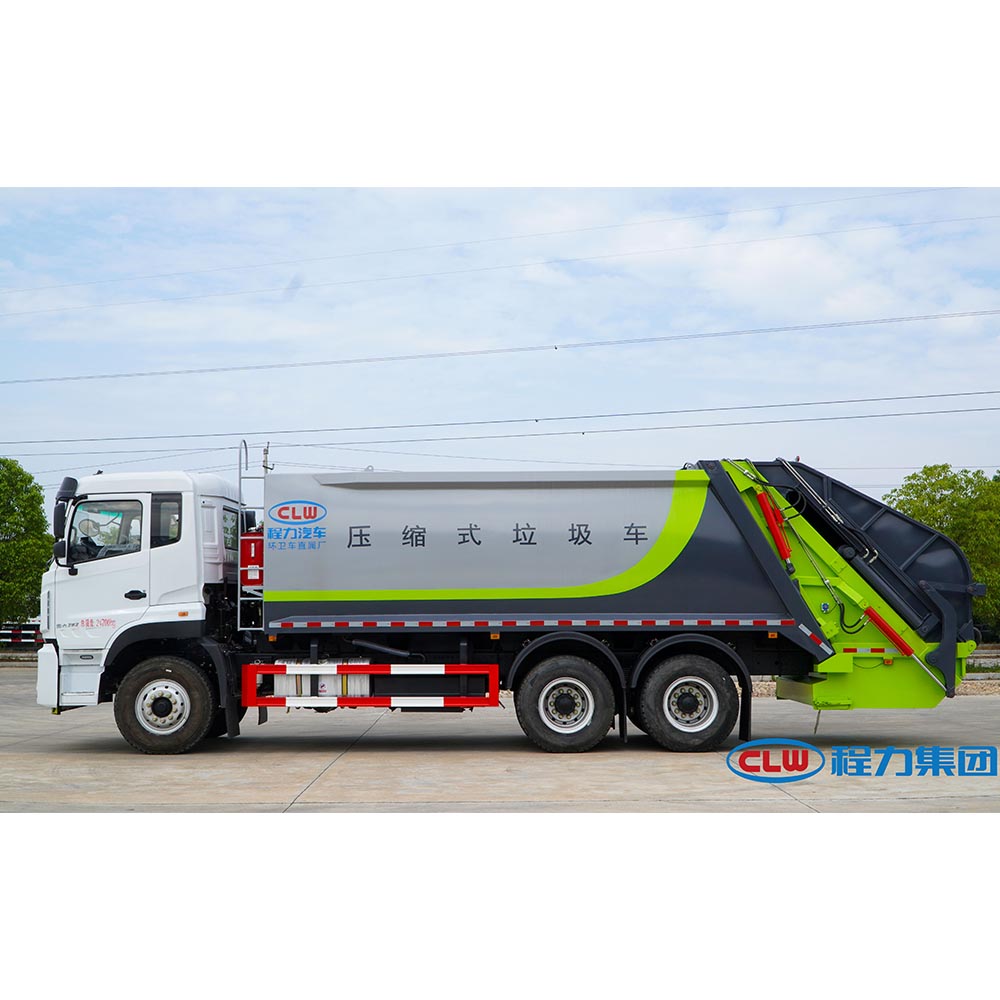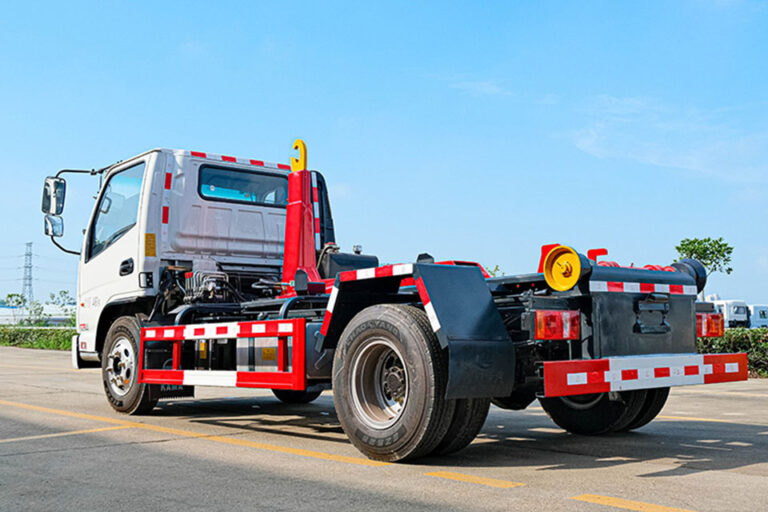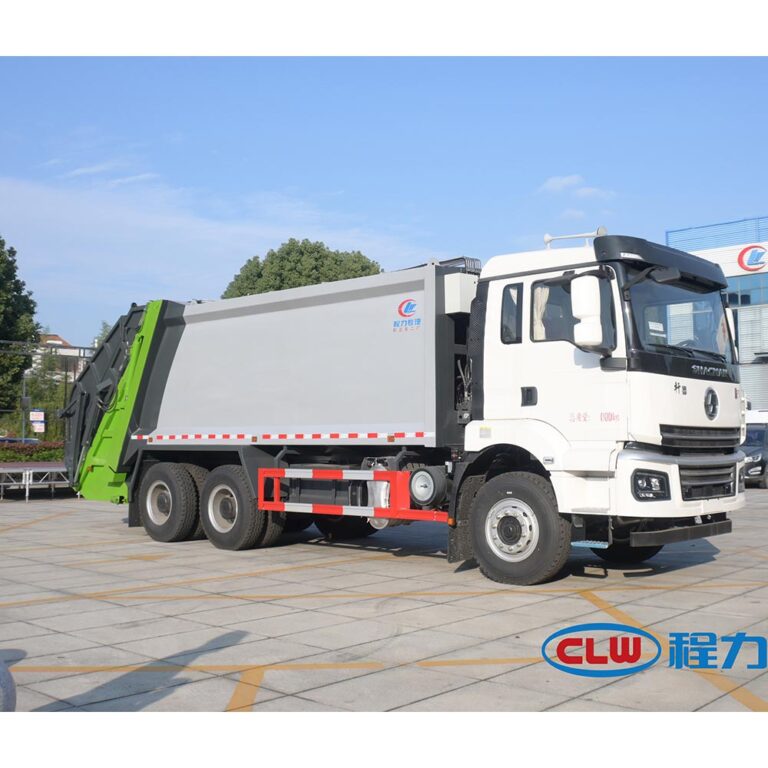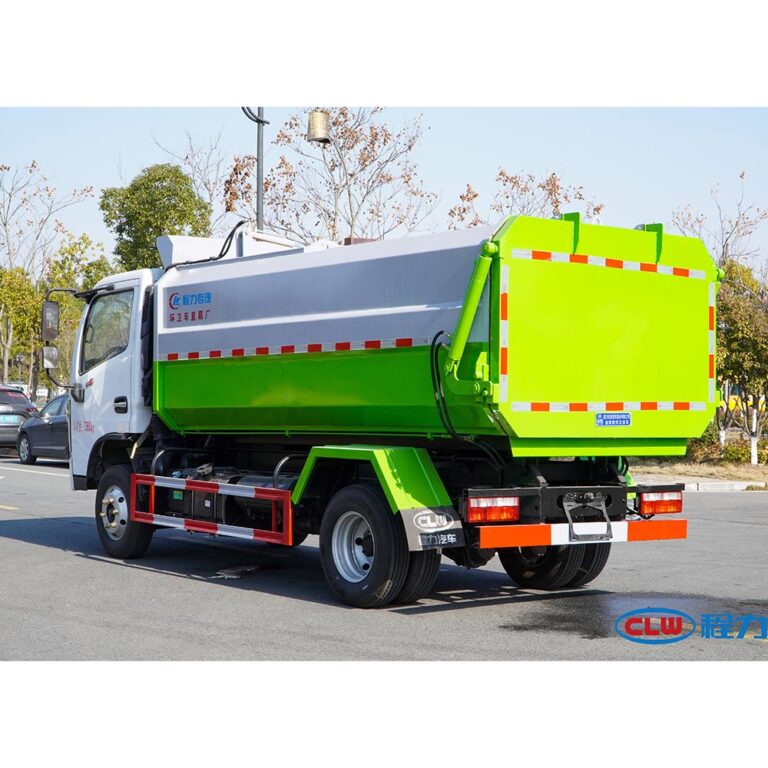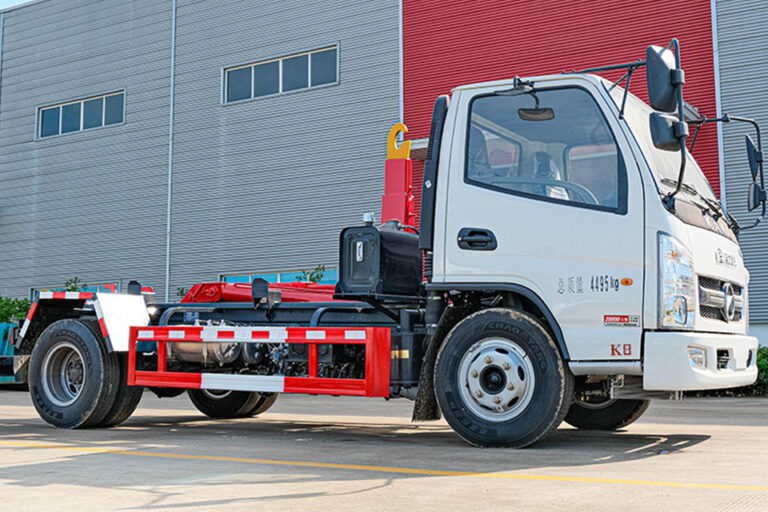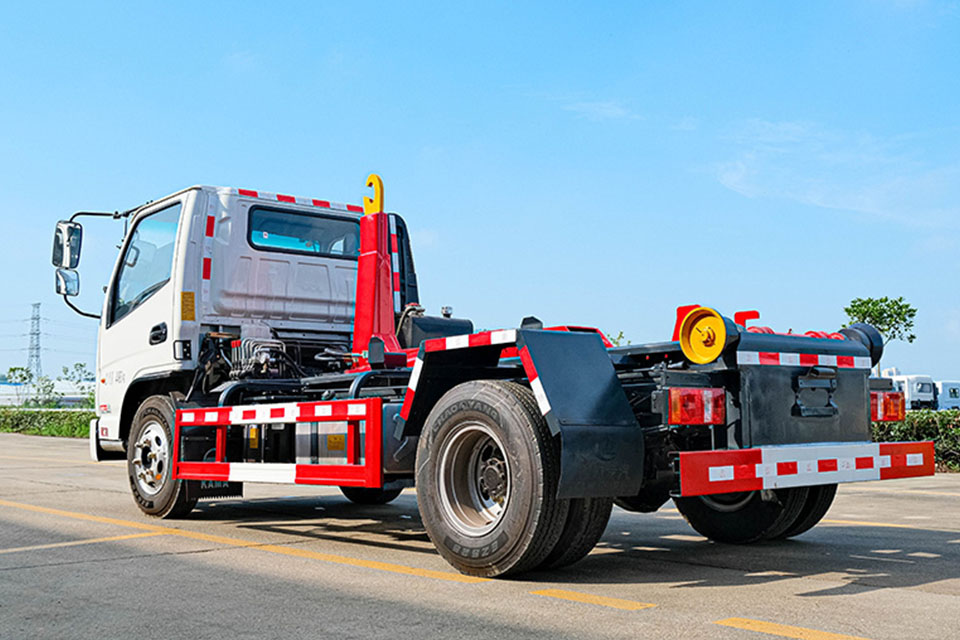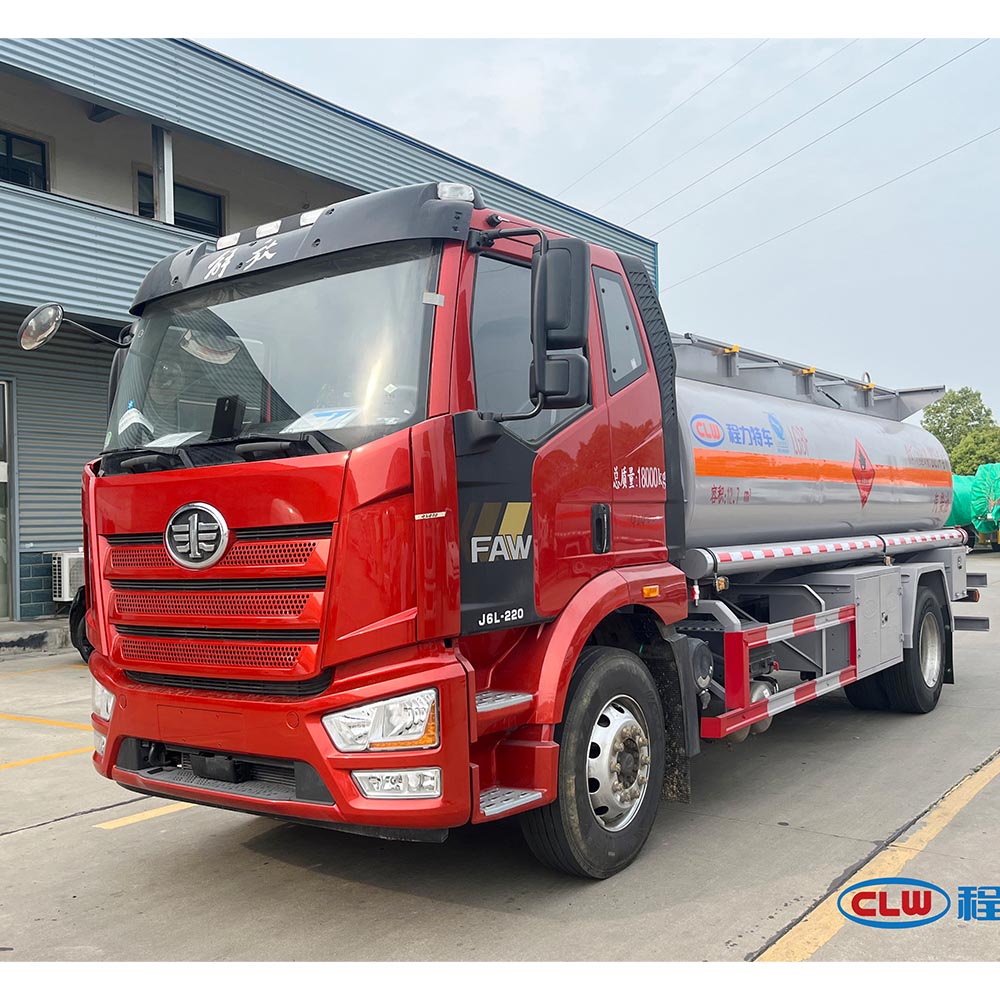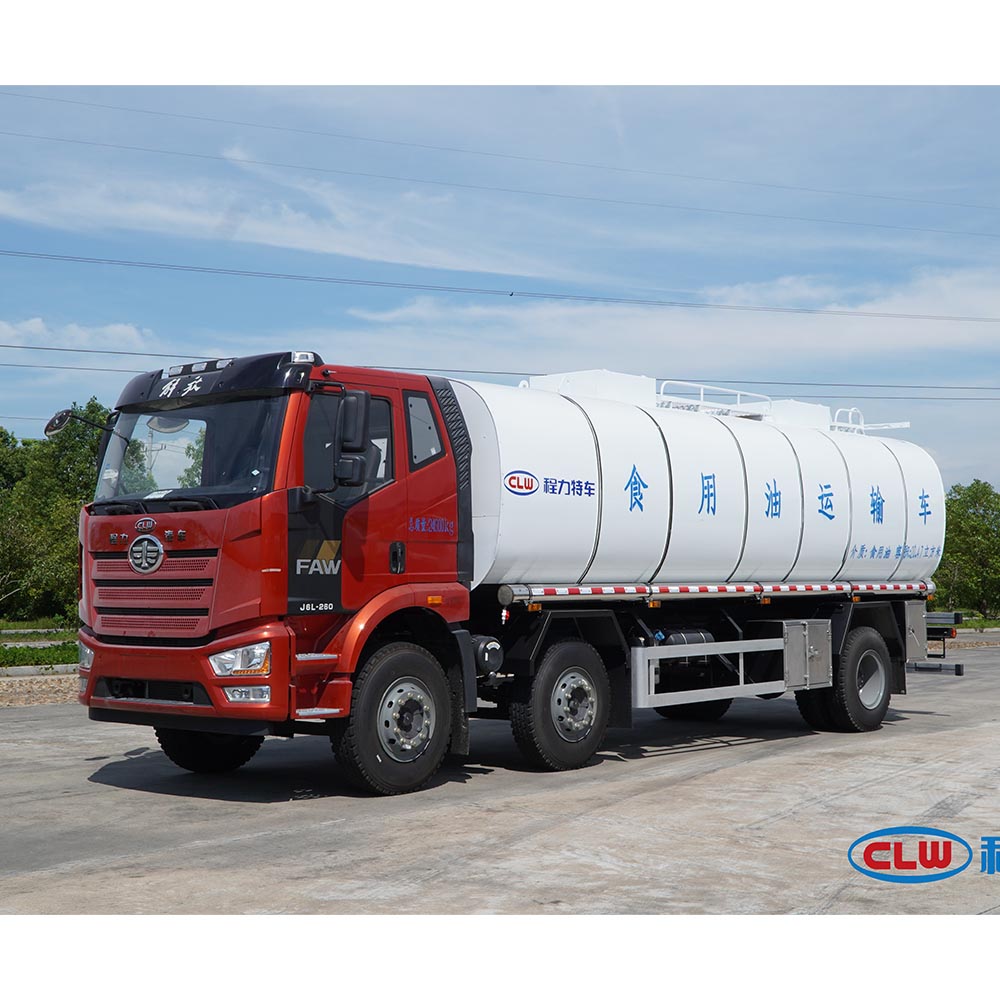-
Taman Industri Mobil Chengli

apa perbedaan antara truk sampah dan truk pengangkut sampah
Menjelajahi Berbagai Jenis Truk Sampah: Panduan Komprehensif untuk Pengelolaan Sampah
Artikel ini membahas tentang dunia truk sampah yang beragam, mengeksplorasi berbagai jenis, fungsi, dan peran penting mereka dalam pengelolaan sampah modern. Apakah Anda mewakili departemen sanitasi kota, perusahaan pengelolaan limbah swasta, atau organisasi apa pun yang berurusan dengan pembuangan limbah yang besar, memahami nuansa kendaraan khusus ini sangat penting untuk mengoptimalkan operasi Anda. Temukan bagaimana desain truk sampah yang berbeda memenuhi kebutuhan spesifik, mulai dari pengumpulan sampah perumahan hingga penanganan limbah industri yang besar, dan pelajari mengapa pengetahuan ini sangat penting untuk membuat keputusan yang tepat yang meningkatkan efisiensi, keselamatan, dan tanggung jawab lingkungan.
Daftar Isi
1. Apa Saja Jenis Truk Sampah yang Utama?
Truk sampah, juga dikenal sebagai truk sampah atau truk sampah, adalah kendaraan penting dalam pengelolaan limbah industri. Ini truk dirancang untuk mengumpulkan sampah dan mengangkutnya ke tempat pembuangan sampah atau fasilitas pengolahan limbah. Truk sampah tersedia dalam berbagai jenis, masing-masing disesuaikan untuk kebutuhan pengumpulan sampah tertentu. Yang paling jenis-jenis truk sampah yang umum termasuk:
- Pemuat Depan: Ini truk memiliki garpu di bagian depan yang digunakan untuk mengangkat dan mengosongkan wadah atau tempat sampah.
- Pemuat Belakang: Ini truk memiliki bukaan besar di bagian belakang di mana limbah dimuat, sering kali dipadatkan dengan mekanisme bertenaga hidrolik.
- Pemuat Samping: Didesain untuk pengambilan di tepi jalan, ini truk dapat dimuat secara manual atau otomatis dari sisi.
- Truk Roll-Off: Ini truk digunakan untuk mengangkut tempat sampahyang digulung pada dan dari truk menggunakan rantai atau sistem kabel.
Setiap jenis truk sampah menawarkan keuntungan yang berbeda tergantung pada jenis limbah, volume, dan metode pengumpulan.
2. Bagaimana Cara Kerja Truk Sampah Front Loader dan Apa Manfaatnya?
Truk sampah pemuat depan biasanya digunakan untuk mengumpulkan limbah dari perusahaan komersial dan industri. Ini truk memiliki garpu di bagian depan yang dapat dipasang ke dalam selongsong pada wadah sampah. Garpu tersebut mengangkat wadah di atas truk dan mengosongkannya ke dalam hopper.
Manfaat Mesin Pemuat Depan:
- Efisiensi: Pemuat depan dapat dengan cepat mengosongkan besar wadah, menjadikannya ideal untuk volume tinggi pengumpulan limbah.
- Kapasitas: Mereka biasanya memiliki kapasitas besar, sering kali dapat menampung hingga 40 meter kubik sampah.
- Keserbagunaan: Pemuat depan dapat menangani berbagai jenis-jenis limbahtermasuk barang-barang berukuran besar.
Truk sampah pemuat depan menggunakan sistem hidrolik untuk mengangkat dan mengosongkan limbah ke dalam truk. Mereka sangat berguna di area dengan tempat sampah. A pemuat depan adalah pilihan yang sangat baik untuk bisnis yang menghasilkan limbah padat.
3. Apa Saja Keuntungan Menggunakan Truk Sampah dengan Pemuat Belakang?
Truk sampah pemuat belakang serbaguna dan banyak digunakan di pengelolaan limbah. Mereka memiliki bukaan besar di bagian belakang di mana kantong sampah atau kosong konten dari yang lebih kecil wadah dapat dimuat. Dinding yang bergerak dengan tenaga hidrolik kemudian memadatkan limbah ke belakang dari truk.
Keuntungan dari Pemuat Belakang:
- Fleksibilitas: Pemuat belakang dapat menangani berbagai jenis-jenis limbah dan metode pengumpulan.
- Pemadatan: Mekanisme pemadatan meningkatkan jumlah limbah yang truk dapat dibawa, mengurangi jumlah perjalanan ke tempat pembuangan sampah.
- Aksesibilitas: Pemuat belakang dapat beroperasi di ruang sempit di mana pemuat depan mungkin berjuang.
Truk sampah pemuat belakang adalah pemandangan umum di area perumahan dan komersial. Mereka dapat secara efektif mengumpulkan sampah kota limbah padat dan mengangkutnya ke fasilitas pengolahan limbah padat.
4. Bagaimana Truk Pemuat Samping Otomatis Merevolusi Pengumpulan Sampah Perumahan?
Pemuat samping otomatis (ASL) truk semakin populer untuk pengumpulan sampah perumahan. Ini truk dilengkapi dengan lengan robot yang dapat mengangkat dan mengosongkan secara otomatis wadah limbah ditempatkan di tepi jalan. Proses otomatis ini meniadakan kebutuhan pengangkatan secara manual, sehingga meningkatkan efisiensi dan keselamatan operator.
Aspek Revolusioner dari ASL:
- Operasi Satu Orang: ASL dirancang untuk satu orang untuk mengoperasikannyamengurangi biaya tenaga kerja.
- Kecepatan dan Efisiensi: Pemuat samping otomatis dapat mengumpulkan sampah lebih cepat daripada metode manual.
- Mengurangi Risiko Cedera: Dengan menghilangkan pengangkatan secara manual, ASL secara signifikan mengurangi risiko cedera pekerja.
Truk muatan samping otomatis dibuat agar sesuai dengan alur yang kompatibel wadah limbahmemungkinkan lengan robot untuk mengangkat sampah dengan tangan dan mengosongkannya ke dalam badan truk. Mereka digunakan dalam pengelolaan limbah untuk mengumpulkan sampah kota secara efisien.
5. Apa Itu Truk Roll-Off dan Kapan Pilihan Terbaik?
A truk roll-off adalah spesialisasi jenis truk sampah dirancang untuk mengangkut tempat sampah. Ini truk memiliki sistem hidrolik yang memungkinkan a wadah untuk digulung ke truk tempat tidur menggunakan sistem rantai atau kabel.
Kapan Memilih Truk Roll-Off:
- Konstruksi dan Pembongkaran: Truk roll-off ideal untuk mengangkut puing-puing dalam jumlah besar dari lokasi konstruksi.
- Pembersihan Skala Besar: Alat ini sangat cocok untuk proyek pembersihan besar yang menghasilkan limbah dalam jumlah besar.
- Acara Khusus: Truk roll-off dapat digunakan untuk memberikan solusi pembuangan limbah sementara untuk acara-acara.
Truk roll-off digunakan untuk mengangkut tempat sampah ke dan dari lokasi. A truk roll-off akan memiliki sistem rantai atau kabel untuk menarik tempat sampah ke truk tempat tidur. Mereka menawarkan solusi yang fleksibel untuk mengelola volume besar limbah padat.
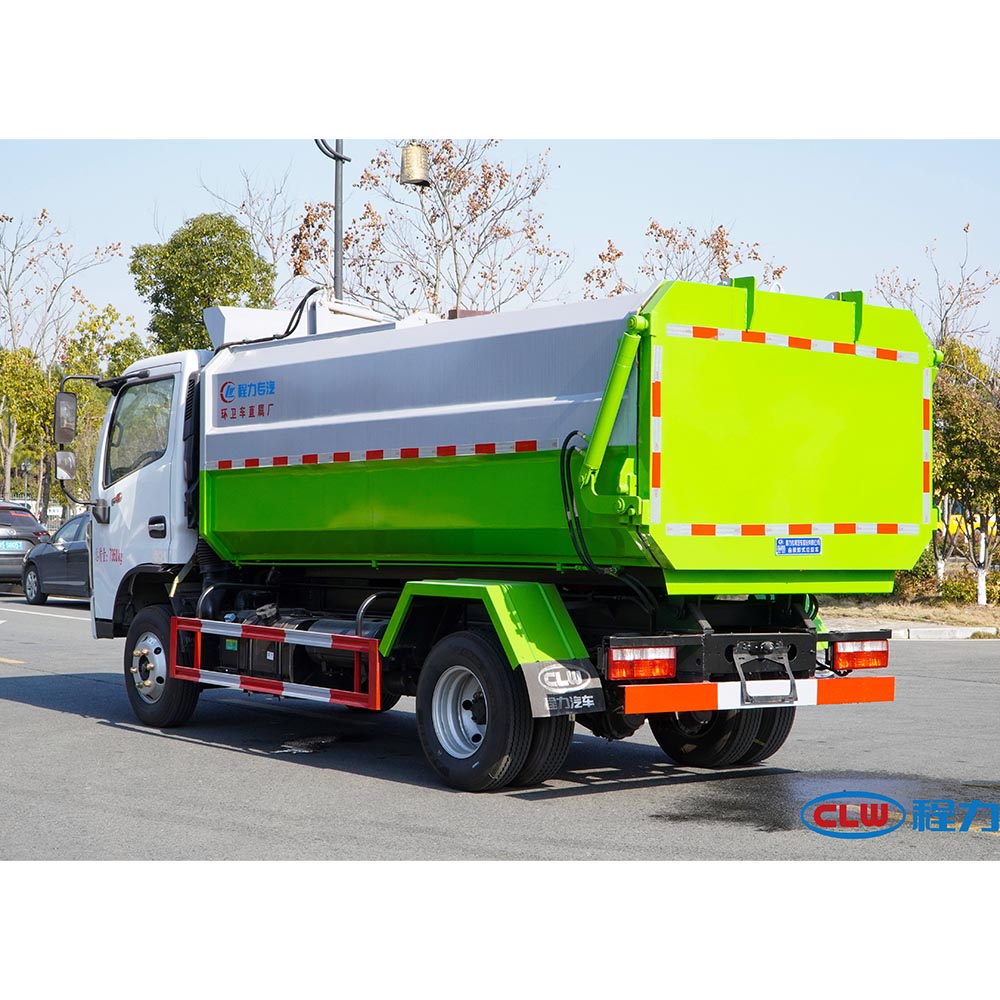
6. Apakah Ada Truk Sampah Khusus untuk Daur Ulang?
Ya, truk daur ulang dirancang khusus untuk mengumpulkan dapat didaur ulang bahan. Ini truk sering kali memiliki beberapa kompartemen untuk memisahkan berbagai jenis-jenis limbahseperti kertas, plastik, kaca, dan logam. Beberapa daur ulang truk dilengkapi dengan mekanisme pemadatan untuk memaksimalkan kapasitas.
Fitur Truk Daur Ulang:
- Beberapa Kompartemen: Memungkinkan pemisahan yang berbeda dapat didaur ulang bahan.
- Pemadatan: Beberapa model ringkas barang daur ulang untuk meningkatkan kapasitas.
- Mekanisme Pemuatan Khusus: Dirancang untuk menangani dapat didaur ulang bahan secara efisien.
Truk daur ulang memainkan peran penting dalam mempromosikan keberlanjutan dengan memastikan bahwa dapat didaur ulang bahan dikumpulkan dan diangkut dengan benar ke daur ulang pusat.
7. Bagaimana Truk Sampah Dirancang untuk Keselamatan dan Efisiensi?
Keamanan dan efisiensi adalah yang terpenting dalam truk sampah desain. Produsen menggabungkan berbagai fitur untuk menyempurnakan keduanya:
Fitur Keamanan:
- Kamera dan Sensor Cadangan: Membantu mencegah kecelakaan saat mundur.
- Interlocks: Cegah agar compactor tidak beroperasi saat hopper terbuka.
- Pemadaman Darurat: Memungkinkan pematian segera dalam keadaan darurat.
Fitur Efisiensi:
- Sistem Pemadatan: Memaksimalkan truk kapasitas, mengurangi jumlah perjalanan yang dibutuhkan.
- Pemuatan Otomatis: Mempercepat proses penagihan.
- Mesin Hemat Bahan Bakar: Mengurangi biaya operasional dan dampak lingkungan.
Modern truk sampah dirancang agar aman dan efisien, menggabungkan teknologi canggih untuk melindungi pekerja dan merampingkan pengumpulan limbah.
8. Apa yang Harus Dipertimbangkan Pembeli Saat Memilih Truk Sampah?
Memilih yang tepat truk sampah merupakan keputusan signifikan yang berdampak pada efisiensi dan biaya operasional. Berikut adalah beberapa pertimbangan utama:
Faktor-faktor yang Perlu Dipertimbangkan:
- Jenis Limbah: Berbeda truk dirancang untuk jenis limbah tertentu. Pertimbangkan apakah Anda memerlukan pemuat depan, pemuat belakang, pemuat sampingatau truk roll-off.
- Volume Limbah: Pilih truk dengan kapasitas yang cukup untuk menangani volume limbah Anda.
- Metode Pengumpulan: Jika Anda membutuhkan penjemputan di tepi jalan secara otomatis, sebuah pemuat samping otomatis adalah pilihan terbaik. Untuk akun komersial dengan jumlah wadah, a pemuat depan mungkin lebih cocok.
- Anggaran: Truk sampah merupakan investasi yang signifikan. Pertimbangkan harga pembelian awal dan biaya operasional yang sedang berjalan.
Membuat keputusan yang tepat membutuhkan pertimbangan yang cermat atas kebutuhan spesifik dan persyaratan operasional Anda.
9. Inovasi Apa yang Membentuk Masa Depan Truk Sampah?
The truk sampah Industri ini terus berkembang, dengan inovasi yang bertujuan untuk meningkatkan efisiensi, keselamatan, dan kinerja lingkungan.
Inovasi yang muncul:
- Truk Sampah Listrik: Mengurangi emisi dan polusi suara, menawarkan alternatif yang lebih ramah lingkungan daripada diesel tradisional truk. Salah satu contohnya adalah Truk Sampah Listrik Murnimerevolusi pengelolaan limbah dengan emisi nol.
- Telematika Tingkat Lanjut: Menyediakan data waktu nyata tentang truk lokasi, kinerja, dan kebutuhan pemeliharaan.
- Fitur Mengemudi Otomatis: Meningkatkan keselamatan dan efisiensi dengan membantu pengemudi.
Inovasi-inovasi ini menjanjikan untuk mengubah pengelolaan limbah industri, sehingga lebih berkelanjutan dan efisien.
10. Bagaimana Memilih Truk Sampah yang Tepat Berdampak pada Biaya Pengelolaan Sampah?
Memilih yang sesuai truk sampah dapat secara signifikan memengaruhi Anda pengelolaan limbah biaya. Begini caranya:
Faktor Dampak Biaya:
- Efisiensi Bahan Bakar: Memilih bahan bakar yang hemat bahan bakar atau listrik truk dapat mengurangi biaya bahan bakar.
- Biaya Tenaga Kerja: Pemuat samping otomatis dapat mengurangi biaya tenaga kerja dengan hanya membutuhkan satu operator.
- Pemeliharaan: Memilih yang tahan lama dan andal truk dapat meminimalkan biaya perawatan dan perbaikan.
- Kapasitas: Memilih truk dengan kapasitas yang tepat dapat mengoptimalkan rute pengumpulan dan mengurangi jumlah perjalanan ke tempat pembuangan sampah atau fasilitas pengolahan limbah.
Dengan mempertimbangkan faktor-faktor ini secara cermat, Anda dapat memilih truk sampah yang meminimalkan keseluruhan pengelolaan limbah biaya.
Pertanyaan Umum
Apa perbedaan antara truk sampah dan truk sampah?
Tidak ada yang praktis perbedaan antara truk sampah dan truk sampahistilah-istilah ini digunakan secara bergantian untuk merujuk pada kendaraan yang dirancang untuk pengumpulan limbah dan pembuangan.
Berapa biaya truk sampah?
Biaya dari sebuah truk sampah sangat bervariasi, tergantung pada jenis, ukuran, dan fiturnya. Harganya bisa berkisar dari $100.000 hingga lebih dari $500.000.
Seberapa sering truk sampah harus diganti?
Masa hidup dari sebuah truk sampah tergantung pada faktor-faktor seperti penggunaan, pemeliharaan, dan kondisi pengoperasian. Rata-rata, truk sampah diganti setiap 7-10 tahun. The Merek Chengli - Kendaraan Pengangkut Peralatan Peledakanyang dikenal dengan daya tahannya, dapat memperpanjang masa pakai ini dengan perawatan yang tepat.
Apakah truk sampah dapat menangani limbah berbahaya?
Tidak, standar truk sampah tidak dirancang untuk menangani limbah berbahaya. Kendaraan dan prosedur khusus diperlukan untuk pengumpulan dan pembuangan bahan berbahaya secara aman.
Jenis pelatihan apa yang diperlukan untuk mengoperasikan truk sampah?
Mengoperasikan truk sampah biasanya membutuhkan surat izin mengemudi komersial (CDL) dan pelatihan khusus tentang jenis truk yang digunakan. Misalnya, mengoperasikan Truk Sampah Kompresi 5m³ membutuhkan keahlian khusus dalam pemadatan dan pembuangan sampah.
Apa saja dampak lingkungan yang ditimbulkan oleh truk sampah?
Diesel tradisional truk sampah berkontribusi terhadap polusi udara dan suara. Namun, bahan bakar listrik dan bahan bakar alternatif truk muncul sebagai pilihan yang lebih ramah lingkungan. Demikian pula, penggunaan Truk Sampah Terkompresi Chengliwei dapat mengurangi jumlah perjalanan yang diperlukan, sehingga menurunkan emisi.
Kesimpulan
Berikut ini adalah beberapa hal penting yang dapat diambil dari panduan komprehensif ini:
- Truk sampah sangat penting untuk pengelolaan limbahtersedia dalam berbagai jenis seperti pemuat depan, pemuat belakang, pemuat sampingdan truk roll-off.
- Pemuat depan ideal untuk komersial pengumpulan limbah karena efisiensi dan kapasitasnya.
- Pemuat belakang menawarkan fleksibilitas dan cocok untuk area perumahan dan komersial.
- Pemuat samping otomatis merevolusi pengumpulan sampah perumahan dengan pengoperasian satu orang dan kecepatannya.
- Truk roll-off sangat cocok untuk mengangkut barang berukuran besar tempat sampahterutama dalam konstruksi dan pembongkaran.
- Truk daur ulang dirancang untuk mengumpulkan dan memisahkan dapat didaur ulang bahan.
- Keamanan dan efisiensi adalah pertimbangan utama dalam truk sampah desain, dengan fitur-fitur seperti kamera cadangan, interlock, sistem pemadatan, dan pemuatan otomatis.
- Memilih yang tepat truk sampah melibatkan pertimbangan jenis limbahvolume, metode pengumpulan, dan anggaran.
- Inovasi seperti listrik truk sampahtelematika canggih, dan fitur mengemudi otomatis membentuk masa depan pengelolaan limbah.
- Memilih yang tepat truk sampah dapat berdampak secara signifikan pengelolaan limbah biaya, termasuk bahan bakar, tenaga kerja, pemeliharaan, dan efisiensi operasional.
Sebagai perusahaan terkemuka truk sampah pabrik manufaktur, kami menawarkan berbagai macam kualitas tinggi truk dirancang untuk memenuhi beragam kebutuhan target pelanggan kami, termasuk Dinas Kebersihan Kota, Swasta Pengelolaan Limbah Perusahaan, Perusahaan Konstruksi dan Pembongkaran, Pusat Daur Ulang, Perusahaan Industri Besar, Perusahaan Manajemen Properti, Bandara dan Pelabuhan, Sektor Pertanian, Rumah Sakit, dan Penyelenggara Acara. Kami truk dibuat dengan standar keamanan, efisiensi, dan daya tahan tertinggi, memastikan kinerja yang andal dan masa pakai yang lama.
Kami mengundang Anda untuk menghubungi kami hari ini untuk mempelajari lebih lanjut tentang produk kami dan bagaimana produk tersebut dapat bermanfaat bagi organisasi Anda. Izinkan kami membantu Anda mengoptimalkan pengelolaan limbah operasi dengan teknologi mutakhir kami truk sampah. Tim ahli kami siap membantu Anda dalam menemukan solusi yang tepat untuk kebutuhan spesifik Anda. Jangan ragu untuk menghubungi kami dan temukan bagaimana truk sampah untuk dijual dapat meningkatkan efisiensi Anda dan berkontribusi pada lingkungan yang lebih bersih.
Bagi mereka yang mengelola kebutuhan transportasi khusus, kami Truk Pengangkut Minyak Goreng menawarkan solusi yang dapat diandalkan untuk transportasi cairan curah. Selain itu, produk kami Truk Pengangkut Peralatan Bahan Peledak memberikan keselamatan dan keamanan yang diperlukan untuk kargo sensitif. Terakhir, beragam kendaraan khusus kami, termasuk opsi untuk menangani bahan berbahaya, memastikan bahwa kami dapat memenuhi persyaratan yang paling unik dan berat sekalipun dari klien kami.
